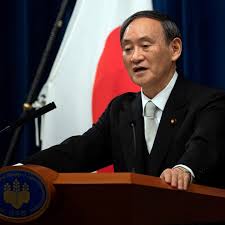WIT Life #346: 「OO活」・「OOハラ」
Interpreter/Translator/Writer Stacy Smith (Kumamoto-ken CIR, 2000-03) presents WIT Life, a periodic series about aspects of Japanese culture such as film, food and language. Stacy starts her day by watching Fujisankei’s newscast in Japanese, and here she offers some interesting tidbits and trends along with her own observations.
Since I last wrote, Japan has ushered in new Prime Minister Yoshihide Suga. He served as Chief Cabinet Secretary under PM Abe for a decade (and also served as Minister of Internal Affairs and Communications for a year in his previous administration ). Best of luck to the first new PM of the Reiwa Era!

Further riffing on the topic of my last post of 涙活, I’d like to highlight some related terms that were featured on this morning’s news. They talked about the phenomenon of 「OO活」 and 「OOハラ」, and did people on the street interviews to find out which phrases were the most popular. The unscientific results were the following:
「OO活」
- ゆう活 (yuukatsu, or evening activities; short for 夕方活動): I discussed this here previously, and it is now being advocated by the Cabinet Secretariat (This was the idea behind the less than successful Premium Friday initiative).
- LO活 (rokatsu, or local job searching activities; short for ローカル + 就活): Looking for work locally, an idea now being proactively pushed by the Ministry of Health and Welfare.
- 推し活 (oshikatsu, or support activities): Fans showing support for their favorite musical groups or celebrities by following them on tour or virtually, purchasing merchandise, etc.
- ポイ活 (poikatsu, or point activities, short for ポイント活動). Though this potentially could be confused for “throw away activities” due to the similar pronunciation of “poi,” it actually refers to accumulating free points from various sources to save money.
- スポ活 (supokatsu or sports activities, short for スポーツ活動): Trying to get more involved with sports.
- 温活 (onkatsu, or heat activities): Various ways to warm up, such as going to stone saunas, soaking in large baths and hot yoga.
- 腸活 (choukatsu, or stomach activities): For those with sensitive stomachs, doing things like having yogurt for breakfast and not eating after 5 or 6 pm.
- 保活 (hokatsu or nursery school activities): For parents looking to get their children into certain nursery schools, learn about the process, etc. Involves going to check out schools, inquiring at government offices and gathering information.
「OOハラ」
- コロハラ (korohara, or Coronavirus harassment, short for コロナ・ハラスメント): New for these times! Calling out people who don’t comply with Covid social norms, such as those not wearing masks, etc.
- ブラハラ (burahara, or blood harassment, short for ブラッドタイプ・ハラスメント): Stereotyping someone based on blood type (whereas here some people don’t even know their blood type!).
- スメハラ (sumehara or smell harassment; short for スメル・ハラスメント ): I also wrote about this in a previous post, and it describes people who are oblivious to their smell (which is presumably pleasing to them?!).
- カスハラ (kasuhara or customer harassment; short for カスタマー・ハラスメント): Customers who behave irrationally toward sales staff they have issues with (can’t hear them well, didn’t like the food, etc.). Includes everything from getting angry to throwing money when paying, and can be as extreme as forcing them to prostrate themselves in front of customers to make up for the grievance.


Comments are closed.